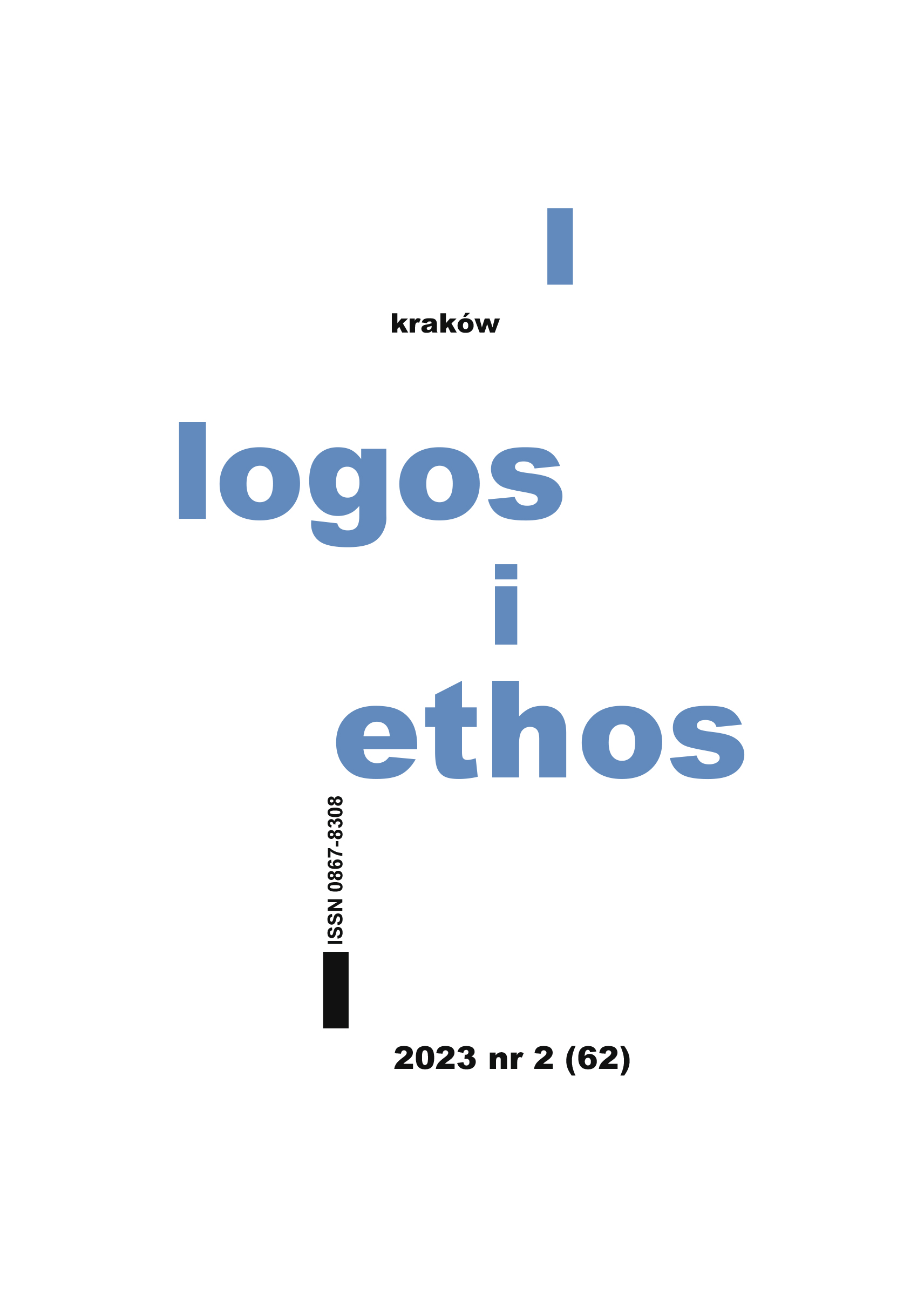Ethical perfectiorism as one of the solutions to prevent anti-civilization activities: an analysis based on the case study of Joseph Beuys
DOI:
https://doi.org/10.15633/lie.62208Keywords:
perfectiorism, Karol Wojtyła, ethics, Antonio Gramsci, Joseph Beuys, philosophy in practice, marching through institutions, utopia, marxismAbstract
The article uses case studies of Joseph Beuys to show that the ethical perfectiorism developed by Karol Wojtyła is an adequate response to anti-civilizational actions, and that Beuys' actions as a lecturer at the Academy of Fine Arts in Düsseldorf were precisely anti-civilizational in nature. In addition, the influence of the concept of “marching through institutions” was pointed out, which strongly influences civilizational struggles in societies – especially democratic ones. On this basis, it was shown that perfectiorism is one of the key concepts that can play a key role in civilization struggles on the ground of institutions.
References
Beuys [a movie], directed by A. Veiel, 2017 Germany.
Beuys J., Aufruf zur Alternative, 1980, https://pinakothek-beuys-multiples.de/wp-content/uploads/2014/06/Aufruf-2.jpg.
Buchanan P. J., The death of the West, New York 2002.
Buchloh B. H. D., Beuys: The twilight of the Idol. Premilinary Notes for a Critique, “Artforum” 1980 no. 18, p. 35–43.
Diefenbach H., Der lange Marsch durch die Institutionen — und warum er nicht dorthin führen kann, wohin man wollte, 11.03.2020, https://sciencefiles.org/2020/03/11/der-lange-marsch-durch-die-institutionen-und-warum-er-nicht-dorthin-fuhren-kann-wohin-man-wollte/.
Dodd B. V., The school of darkness, New York 1954.
Dutschke R., Mein langer Marsch: Reden, Schriften und Tagebücher aus zwanzig Jahren, Hamburg 1980.
Dutton D., The Art Instinct: Beauty, Pleasure, and Human Evolution, New York–Berlin–London 2009.
Działoszyński B., Cywilizacja. Szkice z dziejów pojęcia w XVIII i XIX wieku, Warszawa 2018.
Gramsci A., Pisma wybrane, transl. by B. Sieroszewska, Warszawa 1961.
Joseph Beuys: Polentransport 1981. Opere di Joseph Beuys dal Muzeum Sztuki di Łódź [cat. exh.], Milano 1993.
Joseph Beuys, 7000 Oak Trees [project], 1982, https://www.tate.org.uk/art/artworks/beuys-7000-oak-trees-ar00745.
Kaczmarek J., Joseph Beuys. Od sztuki do społecznej utopii, Poznań 2001.
Karoń K., Historia antykultury 1.0. Podstawy wiedzy społecznej, Warszawa 2019.
Karoń K., Historia antykultury. Podstawy wiedzy społecznej. Wersja robocza, Warszawa 2018.
Koneczny F., Cywilizacja łacińska, Warszawa 2020.
Koneczny F., O wielości cywilizacji, Warszawa 2015.
Koneczny F., Prawa dziejowe, Warszawa 2020.
Koneczny F., Rozwój moralności, Warszawa 2020.
Krzemień-Ojak S., Antonio Gramsci — filozof kultury, in: Filozofia współczesna, ed. Z. Kuderowicz, Warszawa 1990, p. 57–78.
Lauf C., Joseph Beuys: The pedagogue as persona, Columbia University 1992.
Moffitt J. F., Occultism in avant-garde art: the case of Joseph Beuys, Michigan 1988.
Noce A. del, Gramsci, czyli samobójstwo rewolucji, transl. by A. Schymalia, Warszawa 2023.
Noce A. del, Marxism Died in the East Because It Realized Itself in the West, 16.01.2020, https://churchlifejournal.nd.edu/articles/marxism-died-in-the-east-because-it-realized-itself-in-the-west/.
Rappmann R., Der soziale Organismus — ein Kunstwerk, in: Soziale Plastik: Materialien zu Joseph Beuys, Achberg 1976.
Richter P., Beuys: “To be a teacher is my greatest work of art!”, De Witte Raaf 1994.
Rozwadowski D., Kościół w obliczu rewolucji. Marksistowski marsz przez instytucje Kościoła katolickiego, Warszawa 2021.
Rozwadowski D., Marksizm kulturowy. 50 lat walki z cywilizacją Zachodu, Warszawa 2018.
Rożdżeński R., Ateistyczne korzenie ponowoczesności, Kraków 2023.
Saciuk-Gąsowska A., Joseph Beuys. Na obrzeżach Europy, in: A. Saciuk-Gąsowska, K. Jurecki, Joseph Beuys. Obrzeża Europy, Bielsko-Biała 1997, p. 10–14.
Schönhoff D., Mit Beuys Durch Dusseldorf, Doste Verlag 2018.
The Kimme Musuem of Art And Sculpture, http://www.luisekimme.com/bio.html.
Wojtyła K., W poszukiwaniu podstaw perfekcjoryzmu w etyce, “Roczniki Filozoficzne” 5 (1955–1957) no. 4, p. 303–317.
Zweihundert Jahre Kunstakademie Dusseldorf, Dusseldorf 1973.
Downloads
Published
Issue
Section
License

This work is licensed under a Creative Commons Attribution 4.0 International License.
Authors who publish with this journal agree to the following terms:
- Authors retain the copyright and full publishing rights without restrictions, and grant the journal right of first publication with the work simultaneously licensed under a Creative Commons Attribution 4.0 International License that allows others to share the work with an acknowledgement of the work's authorship and initial publication in this journal.
- Authors are able to enter into separate, additional contractual arrangements for the non-exclusive distribution of the journal's published version of the work (e.g., post it to an institutional repository or publish it in a book), with an acknowledgement of its initial publication in this journal.
- Authors are permitted and encouraged to post their work online (e.g., in institutional repositories or on their website) prior to and during the submission process, as it can lead to productive exchanges, as well as earlier and greater citation of published work (See The Effect of Open Access).

